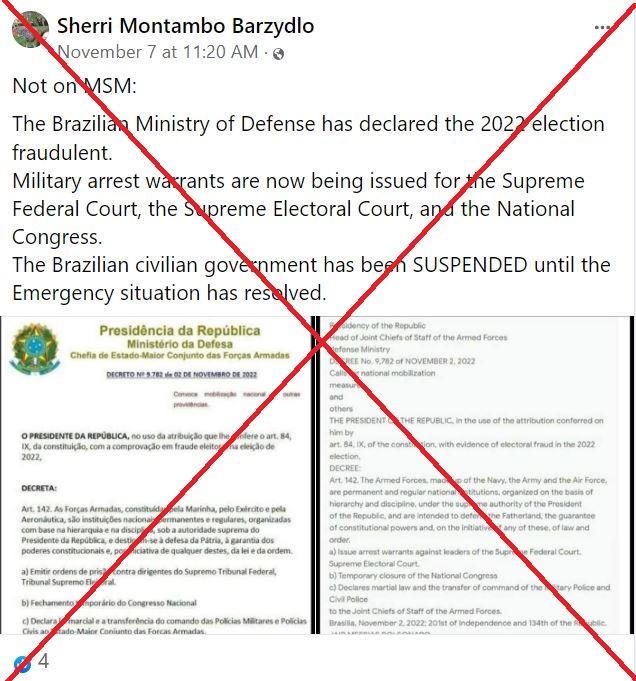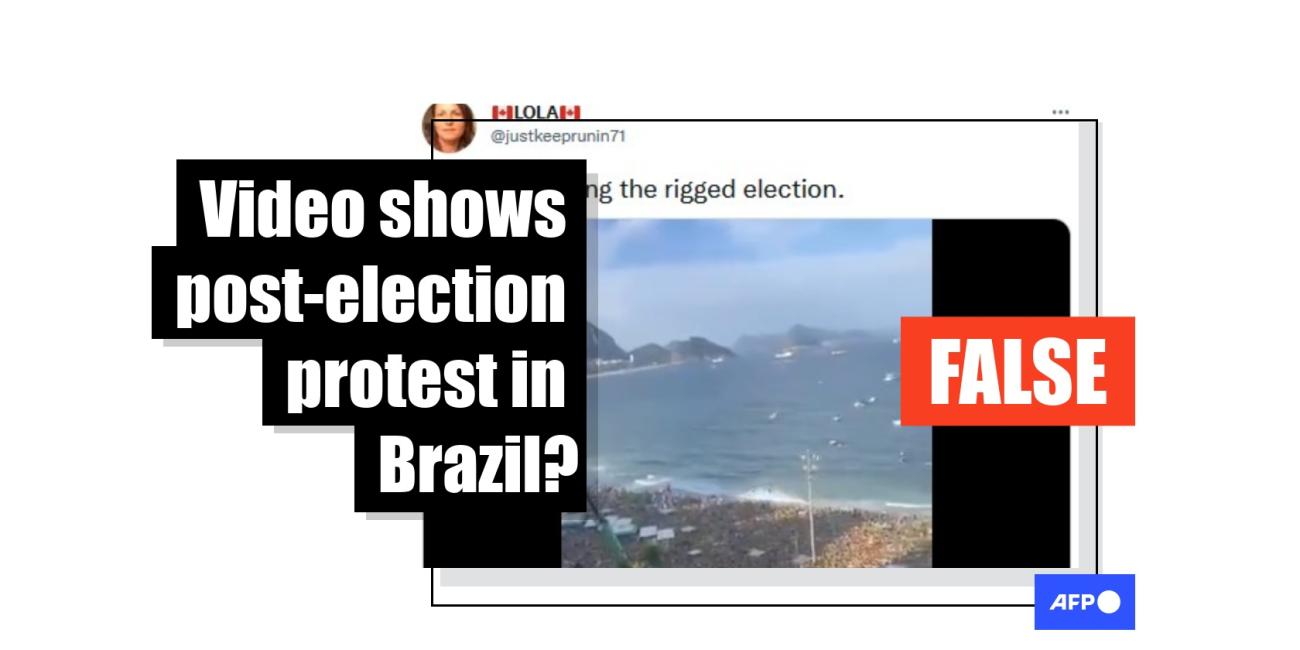
Fabricated Brazilian govt decree does not declare election result 'fraudulent'
- This article is more than three years old.
- Published on November 26, 2022 at 07:35
- Updated on December 1, 2022 at 02:58
- 2 min read
- By AFP Brazil, AFP Spain, AFP Australia
- Translation and adaptation Kate TAN
"The Brazilian Ministry of Defense has declared the 2022 election fraudulent," reads a Facebook post shared on November 7.
The post adds that "military arrest warrants are now being issued" to the Supreme Federal Court and Supreme Electoral Court, as well as Brazil's parliament, the National Congress -- and that the government has been "suspended" pending investigation.
Veteran leftist Luiz Inacio Lula da Silva narrowly defeated far-right President Jair Bolsonaro in October's election, marking a return to office for the 77-year-old who previously served two terms between 2003 and 2010.
Bolsonaro's party called on the electoral court to reject ballots from some 280,000 voting machines, alleging errors that it said robbed their leader of re-election. But the country's top electoral authority threw out the challenge and fined the Liberal Party more than $4 million for bringing the case "in bad faith".
The Facebook post shows a document marked "Decree 9,782", which claims to invoke Article 142, ordering the arrests of court officials, suspending parliament and transferring power to the military.
The document appears to be signed by Bolsonaro and Defence Minister Paulo Sérgio Nogueira de Oliveira.

The posts circulated on social media around the world, including in the United States, Australia and Canada.
However, the document in the posts is not a genuine government decree.
Spokespeople for Brazil's Supreme Electoral Court and National Congress told AFP on November 8 that the claims shared in the posts were incorrect.
Representatives for both houses of Brazil's parliament, known collectively as the National Congress, added that parliament was not closed and continued to work as normal.
The Supreme Federal Court referred AFP's enquiry to the defence ministry, which did not respond.
Wrong decree
The Brazilian government's decree 9,782 -- the number listed on the fabricated document shared on social media -- related to changes in the structure of the Ministry for Women, Family and Human Rights, not military arrest warrants.
The decree was issued on May 3, 2019 by the General Secretariat, not the Ministry of Defence.
There has been no "decree 9,782" issued since the 2022 presidential election.
Furthermore, Article 142 -- which the defence ministry purportedly invoked -- is not related to military invention in government functions.
Law professor Ricardo Victalino de Oliveira from the Damásio Educacional and Clio Course said that the army could not act beyond the power of the Supreme Federal Court.
"It is impossible for the Executive Power [exercised by the outgoing president] to usurp this function of the Judiciary," he told AFP.
Renato Toledo, a doctoral student in state law at the University of São Paulo told AFP in July 2022 that the article "is part of a system of rules that provides for independence and harmony among the branches of government, without any institution being able to exercise supremacy over the others".
December 1, 2022 This article previously said there was no institution in Brazil called the 'Supreme Federal Court'. There is indeed a Supreme Federal Court.
Copyright © AFP 2017-2026. Any commercial use of this content requires a subscription. Click here to find out more.
Is there content that you would like AFP to fact-check? Get in touch.
Contact us

